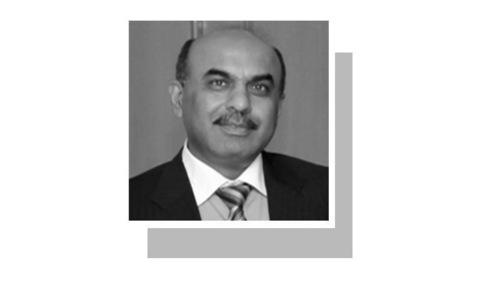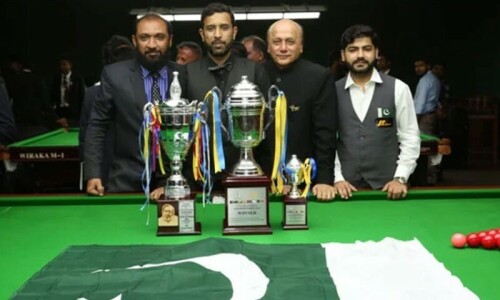THE UN Security Council last week adopted two resolutions; one, outlining a plan for a political solution to the Syrian civil war and the second, declaring the militant Islamic State group and Al Nusra as terrorist organisations to be defeated by the international community. At a joint media conference, the Russian foreign minister said: “I’m not too optimistic about what has been achieved today.”
There are good reasons for scepticism. The plan to resolve the Syrian conflict lacks credibility, especially since it does not frontally address the future of President Assad and his regime. Nor does the second resolution offer a coherent military and political strategy to defeat IS.
The Syrian civil war started when, in the euphoria of the Arab Spring, the latent opposition to the minority Alawite regime was externally encouraged, evoking an unsurprisingly brutal response from the regime. In the ensuing Sunni insurgency, IS — composed of elements from the former Al Qaeda in Iraq and Saddam’s disbanded army — emerged as the most effective fighting force. It held territory; secured revenue sources; established governance and other attributes of a functioning state. Despite financial and material support from neighbouring Sunni powers, IS felt beholden to none and pursued tactics intended to create its own version of ‘shock and awe’.
IS was initially dismissed as a “varsity [amateur] team” by President Obama. Notwithstanding its capture of the vast Sunni heartland across Syria and Iraq, IS did not become America’s enemy number one until it publicised the execution of an American journalist.
The US president announced a hastily formulated ‘strategy’ on Sept 10, 2014 to “degrade and destroy” IS: air strikes; training of secular insurgents; improving counterterrorism capabilities and continued humanitarian assistance to the victims of the Syrian civil war. One year on, it is evident that the strategy has been far from successful.
An aerial campaign will not be sufficient to defeat the militant Islamic State group in the absence of land forces.
Aerial bombardment has damaged IS capabilities and enabled Kurdish and Iraqi forces to push it out of a small part of the territory it occupies in Iraq and Syria. The US programme to train friendly Syrian fighters has been a fiasco. The humanitarian situation has deteriorated, with millions of Syrians in refugee camps or flowing to supposed safe havens in Europe.
Attacking IS may have accelerated the very threat it was meant to avert. IS has conducted terrorist attacks against regional and Western countries; extended its operations into several conflict zones and generated thousands of recruits to its cause from Muslim and Western countries
With its traditional pragmatism, the US appears to be amenable to Russia’s proposal to defer ousting Assad and focus on fighting the terrorists. But Saudi Arabia, its Gulf allies and Turkey remain reluctant to relent in securing the end of the Assad regime. Most of the 48 Syrian insurgent groups are also disinclined to fight IS while Assad remains in power.
Yet, ousting Assad has become much more difficult. Support for the regime from Tehran, Baghdad and Hezbollah has become more overt and substantive. Russia has intervened militarily to support the regime and fight its ‘terrorist’ opponents which include not only IS but some of the groups supported by Turkey, Saudi Arabia, other Sunni powers and the US. To complicate matters, Turkey is unhappy with advances made by the Kurdish forces against IS as its own war with the Kurdish PKK ‘terrorists’ has been renewed and escalated.
The rivalry within the putative anti-IS coalition has become toxic after Turkey’s downing of a Russian military aircraft ostensibly for infraction of Turkish airspace but in reality for bombing ethnic Turkish insurgents fighting the Assad regime. While Russia has entered into military coordination arrangements with Iran, Iraq and the Assad regime, the US, France and the UK are pursuing their separate bombing campaign against IS. Meanwhile, Saudi Arabia has announced a coalition of 34 Arab and Islamic states, including Pakistan, whose aims and strategy are still unclear.
Under the circumstances, the US-led endeavours to form a ‘transitional’ government in Damascus, and, more immediately, a broad coalition to fight IS, are likely to prove extremely challenging.
An aerial campaign, no matter how intense, will not be sufficient to defeat IS in the absence of a land force to oust IS from the vast regions it occupies and to hold such territory once ‘liberated’. Iran could intervene with significant forces; but this would be internationally unacceptable and exacerbate the Shia-Sunni divide. The Kurds are insufficient and would be opposed by Turkey. The other Syrian insurgent groups are incapable or unwilling to fight IS.
Clearly, a political understanding must precede a military campaign against IS. This must first and foremost address the core contest between Iran and Saudi Arabia.
The most feasible approach may be the creation of loose federal structures in both Syria and Iraq which separate the warring factions but maintain the legal existence of the two states; and in Syria, a Sunni administration where they are in majority with the Assad regime restricted to the Alawite majority region, and the Kurds enjoying autonomy. In Iraq, the federal structure would envisage Baghdad ruling the Shia (eastern and southern) regions with autonomous entities controlled by the Sunnis and the Kurds in the east and north. No doubt, Iran would want access to the Alawite region and Lebanon; Turkey would require assurances against a unified Kurdish state.
Only once an understanding is reached on the broad parameters of such a ‘grand bargain’ would joint military action against IS by regional states become possible. Turkey, Iran, Jordan and Saudi Arabia could provide the forces to push back IS, Al Nusra and other terrorist groups and hold the ground from which they are ejected.
A military defeat of IS, however, would not be sufficient to prevent the persistence of its terrorist operations à la Al Qaeda in and outside the region. A more comprehensive effort will be required to defeat the narrative and ideology of IS and other ‘violent extremists’ — a strategy encompassing the just settlement of disputes involving Muslims; rapid economic and social development; an end to the alienation of Muslim youth in Western countries; and the elimination of Islamophobia. This is the ‘long war’ which must be waged to restore stability in the Middle East and avoid a clash of civilisations.
The writer is a former Pakistan ambassador to the UN.
Published in Dawn, December 27th, 2015











































